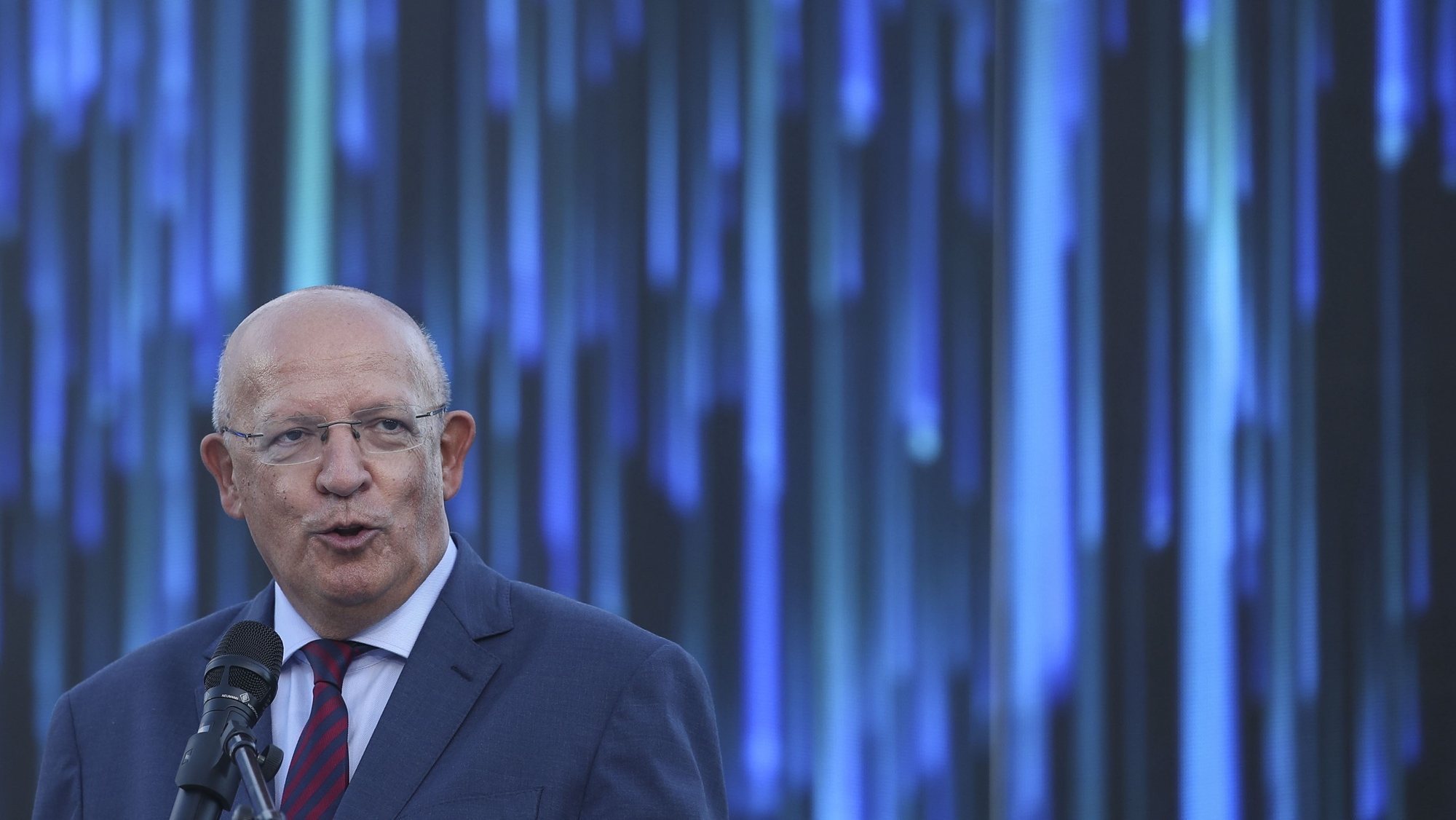The Chega initiative, which seeks to censor the conduct of the president of parliament, Augusto Santos Silva, “suffers from constitutional and regimental disagreement”, as it does not have the conditions to be admitted, defends an opinion prepared by the sole deputy of the PAN.
According to the 19-page document, to which Lusa had access and which will be voted on Wednesday in the Committee on Constitutional Affairs, Rights, Freedoms and Guarantees, Chega’s draft resolution “does not meet the admissibility requirements” and “suffers from disagreement constitutional and regimental.
The opinion, which aims to support whether the Chega project can be admitted to debate or not, was in charge of the sole deputy of the PAN, Inês Sousa Real. The document concludes that the initiative “does not have express constitutional authorization (or regiment), attributing competence to the Assembly of the Republic, so that it can censor the conduct of the President of the Assembly of the Republic or of any other deputy to the Assembly of the Republic, except as provided by law, namely, in the Statute of Deputies”.
The only case in which the Constitution allows a resolution of censure, by the Assembly of the Republic, is regarding the approval of a motion of censure against the Government” and not against the President of Parliament, reads the text.
Inês Sousa Real also maintains that “the denunciation and the appeal to the plenary session are regimental forms of challenging the decisions of the President of the Assembly of the Republic, and it is still possible that the deputies resort to other regimental figures to react to the actions of the Table and/or any other deputies”.
In the text, the deputy details that “the approval of a motion of censure against the Government is the only case in which the Constitution allows the Assembly of the Republic to decide to censure someone, that is, the Government” and, even in In these cases, the appropriate way is not through a resolution, but through a motion, in accordance with subsection 4 of article 166 of the Constitution.
Inês Sousa Real emphasizes that the deputies “have at their disposal the complaint and the appeal to the plenary session as ways to challenge the decisions of the President of the Assembly of the Republic and that “only these forms of challenge are possible to overcome the decisions” of the President of Parliament “which may be controversial from a legal, constitutional or regimental point of view”.
According to the Regulation, the deputy points out, parliamentarians also have the possibility of resorting to other figures in the regiment to react to the actions of the Table or other deputies, namely, through interpellations to the Table, protests and counter-protests or defense. honorary.
The deputy underlines that “any initiative in this sense, if finally accepted, constitutes a sterile and gratuitous discussion, since it would not entail any type of consequence, that is, it would not have any external effect to that which is intended in a resolution”. .
In addition, as a mere academic hypothesis, not even constitutionally or regimentally is it possible for any deputy to lose his mandate due to censorship of his conduct (article 160, n. the Statute of Deputies”, he stresses.
Sousa Real also cites paragraph 1 of article 157 of the Constitution, which establishes that “deputies are not civilly, criminally or disciplinary liable for the votes and opinions they cast in the exercise of their functions.”
“The deputies, including Your Excellency. The President of the Assembly of the Republic cannot be censured by the sovereign bodies of the Assembly of the Republic, meeting in plenary session, for the political options that he defends or for the judgments and assessments that he makes in the performance of his parliamentary mandate.” , says yes in the text.
At the end of July, Chega presented a draft resolution that seeks to censure the conduct of the president of parliament, for lack of impartiality and exemption in the exercise of his position.
Santos Silva asked the Constitutional Affairs Commission to issue an opinion “on constitutional and regulatory compliance” with the Chega draft resolution, “specifically for the purposes of its admissibility” and justified this decision “due to the doubts raised by the services of the Assembly but also because of the very deep and very complex doubts” raised “at the ethical-political level, not because of this draft resolution in particular, but because of the precedent it may create.”
The writing of the opinion was attributed to the PAN after the PSD asked for an excuse to do so, refusing to feed any political “folklore”, and the Liberal Initiative also refused to “do the work that the PSD should do”. .
Source: Observadora
